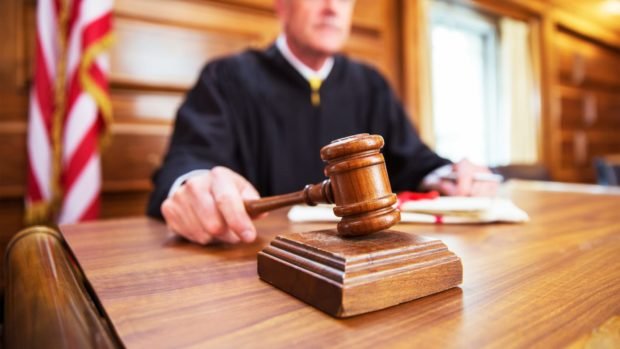



Since the ratification of the Magna Carta in 1215, the right of accused people to be tried by their peers has been an essential protection against government overreach in English Common Law. That function was so vital that denial of the right to trial by jury was one of the American Revolutionaries’ core grievances that led them to declare independence from Great Britain in 1776.
Fast forward to 2023 and the Scottish government will pilot trying certain serious sexual assault cases without a jury. This may be motivated by a sincere desire to get justice for victims. Still, undermining juries only consolidates the power of government ministers and senior judges.
The rationale of the proposal is simple: convictions for sexual assault are low and the Scottish government believes that juries are partly responsible. Scotland’s Justice Secretary Angela Constance has cited “the prevalence of pre-conceptions” among juries. This refers to the tendency of juries to believe common “rape myths” about the nature of consent and the relevance of victims’ previous sexual behaviour. Although we should absolutely tackle these pernicious myths, it is not the core reason for the low conviction rate. Poor policing, low reporting, and the inherent difficulty with gathering evidence to prove an accusation are far more significant obstacles.
Even if the Scottish government’s complaints were valid, it would not justify abolishing juries or diminishing their role. Trials conducted by an independent judiciary and resolved by juries are vital checks to state power. The government can investigate and charge people with crimes, take proportionate action to bring justice to victims and protect society from violence. The judiciary’s role is to safeguard peoples’ rights in the process and ensure the state does not victimize innocent people.
Trials are meant to evaluate the merits of individual cases. It would be profoundly unjust to subject people to fines, probation, imprisonment, and a life spent labelled as a sex offender just to satisfy the Scottish government’s arbitrary prosecution quota. That simply perpetuates the cycle of victimization and relegates innocent people unfortunate enough to be accused of sex crimes to being collateral damage.
On this issue in particular, the risk of collateral damage is significant. It is true that throughout history, women have been treated unequally, denied liberty, and treated as men’s property. But we have seen how a vengeful, collectivist approach to sexual justice has tangibly damaged both men and women. The “believe all women” mentality instilled by the #MeToo era saw some men accused of sexual misconduct with claims that were either false or exaggerated. A February 2020 survey found 60 percent of men are now afraid to mentor women in the workplace for fear of malicious or false accusations. Translating this mindset—that blaming innocent men can be justified on the basis that women have been victimized as a collective in the past—into our formal justice system, where people’s liberty and property are on the line, would be unconscionable.
As Johnny Depp’s lawsuit against Amber Heard showed, juries are vital to preventing the law from doing just that. Jurors can apply moral judgements to cases independent of those established in law. They can use common sense to understand when the law is improperly interpreted or used to unfairly target individuals. As the great abolitionist anarchist Lysander Spooner wrote in An Essay on the Trial by Jury:
“[Juries] must judge of the existence of the law; of the true exposition of the law; of the justice of the law; and of the admissibility and weight of all the evidence offered; otherwise the government will have everything its own way;”
As Spooner alludes, juries don’t have to convict a person for a crime, even if the facts of the case are proven beyond a reasonable doubt. Known as a “perverse verdict” or “jury nullification,” juries can acquit defendants for any reason, including if they believe the government hasn’t followed proper procedure, if they disagree with the application of the law, or, if they believe the law itself is unjust.
Nullification is a vital bulwark against communities being forced to suffer laws and applications of laws with which they disagree. Having that fundamental backstop in place ensures that the government has to abide by due process obligations more strictly and counter any suggestions that they are victimizing accused individuals for political purposes.
It is also an important vehicle that citizens can use to urge civil servants, ministers, lawmakers, and judges to rethink the laws they impose and interpret. Professional lawyers and politicians are often led astray by the bad incentives and echo chambers that tend to emerge within elite circles.
The Fugitive Slave Act (FSA) is an excellent example of this. Washington, DC was perpetually concerned with compromising with pro-slavery Congressmen, placating their desire to see slavery protected from its rightful place in the dustbin of history by special favours from the government. Wanting to avoid Civil War and secession, pragmatists gave in through measures like the FSA which bound free states to return escaped slaves to their masters or by accepting one new slave state for every free state admitted to the union. It took the common sense and moral decency of randomly selected juries to ensure that this law was not universally applied. With the Scottish government now seemingly prizing arbitrary conviction rates for sexual assault accusations, rather than the merits of individual cases, juries are key to protecting the accused from government overreach.
Of course, juries having this power is not perfect. All-white juries were instrumental in allowing lynching to go unpunished in the Jim Crow South, and in the UK, juries have acquitted environmental extremists who have broken the law by blocking highways and damaging property. However, with Scottish ministers and judges having clearly justified to themselves that ancient procedural checks on their power should be cast aside to suit their preferred legal outcomes, the role of juries is more important than ever.
Content syndicated from Fee.org (FEE) under Creative Commons license.
Agree/Disagree with the author(s)? Let them know in the comments below and be heard by 10’s of thousands of CDN readers each day!
Support Conservative Daily News with a small donation via Paypal or credit card that will go towards supporting the news and commentary you've come to appreciate.
